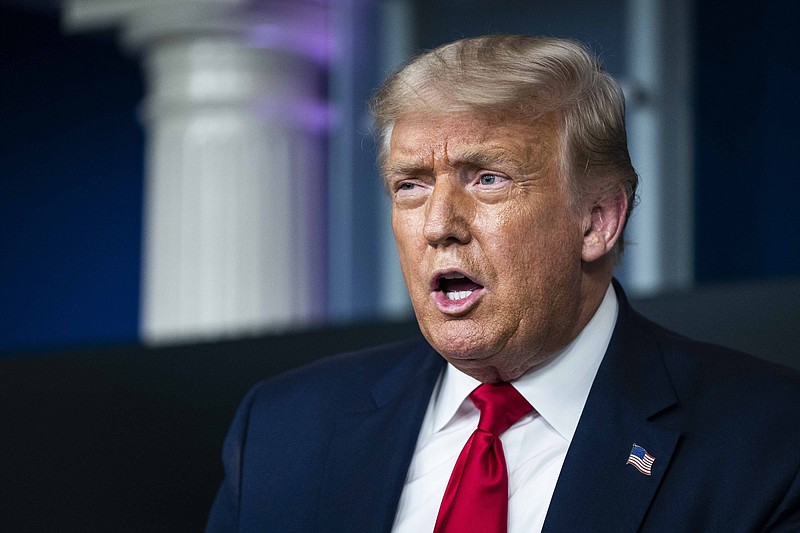WASHINGTON -- President Donald Trump said in an interview broadcast Wednesday that he has not spoken to Russian President Vladimir Putin about U.S. intelligence reports of Russian bounties given to Taliban-linked militants to kill U.S. and coalition forces in Afghanistan.
"I have never discussed it with him, no," Trump said during a taping of "Axios on HBO." He said he did not bring up the issue during his most recent conversation with Putin in the past week, which Trump said was "a phone call to discuss other things."
The Trump administration in recent weeks has questioned the veracity of the intelligence. But some of Trump's own senior intelligence officials viewed the information as credible enough to warn the Pentagon and allies so they could ensure they had measures in place to protect their forces in Afghanistan and to begin developing options for responding to such a Russian operation, national security adviser Robert O'Brien said earlier in the month.
During the interview, Trump continued to cast doubt on the intelligence, saying, "Frankly, that's an issue that many people said was fake news."
[Video not showing up above? Click here to watch » https://www.youtube.com/watch?v=0HzB2tAUd64]
Pressed by Axios's Jonathan Swan on whether he believes the intelligence, Trump did not answer directly.
"You know, it's interesting," Trump said. "Nobody brings up China. They always bring Russia, Russia, Russia."
When reports of the possible bounties emerged in June, Democrats seized on Trump's reluctance to take action as another sign of an unwillingness to challenge Putin.
Trump's "continued infatuation with Putin is a direct threat to U.S. national security -- as evidenced by the fact that he did not raise an issue that has direct implications for the lives of US servicemembers with the government accused of orchestrating these killings," Sen. Robert Casey, D-Pa., said in a tweet Wednesday.
Earlier, Andrew Bates, a spokesman for Democrat Joe Biden's presidential campaign, said that not confronting Putin on the intelligence was part of "an indefensible pattern of Donald Trump weakening the United States in the world in a manner that no American president ever has before, and it's absolutely despicable."
Speaking to reporters Wednesday as he left the White House on a trip to Texas, Trump said he would be "very angry" if Russia had ordered bounties."So I don't know why they'd be doing it, but if you tell me they're doing it, I will certainly take that under consideration," he said. "I would respond appropriately." Trump insisted that "nobody's been tougher on Russia" than him.
During the Axios interview, Trump stressed that he was not orally briefed on the intelligence about possible Russian bounties.
"It never reached my desk," Trump said. "You know why? ... Intelligence didn't think it was real. ... If it reached my desk, I would have done something about it."
Trump did not respond directly to a question about news reports that the intelligence was included in a written briefing. In response to a question from Swan, Trump said he reads his written briefings.
"They like to say I don't read. I read a lot," Trump said.
He said that "a lot of people," including some foreign policy officials from the administration of former President George W. Bush, were convinced that the intelligence was not real.
Trump also pressed his belief that there are opportunities to improve U.S.-Russian relations.
"If we can do something with Russia, in terms of nuclear proliferation, which is a very big problem -- bigger problem than global warming, a much bigger problem than global warming in terms of the real world, that would be a great thing," Trump said.
Information for this article was contributed by Ellen Nakashima of The Washington Post.

